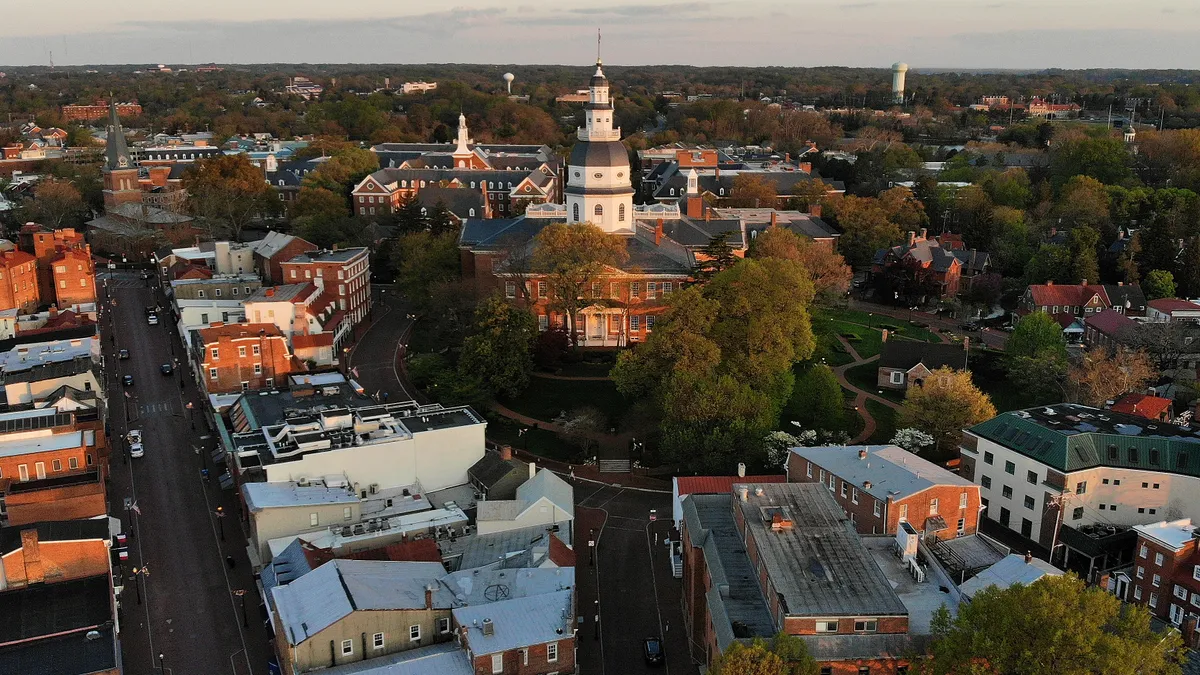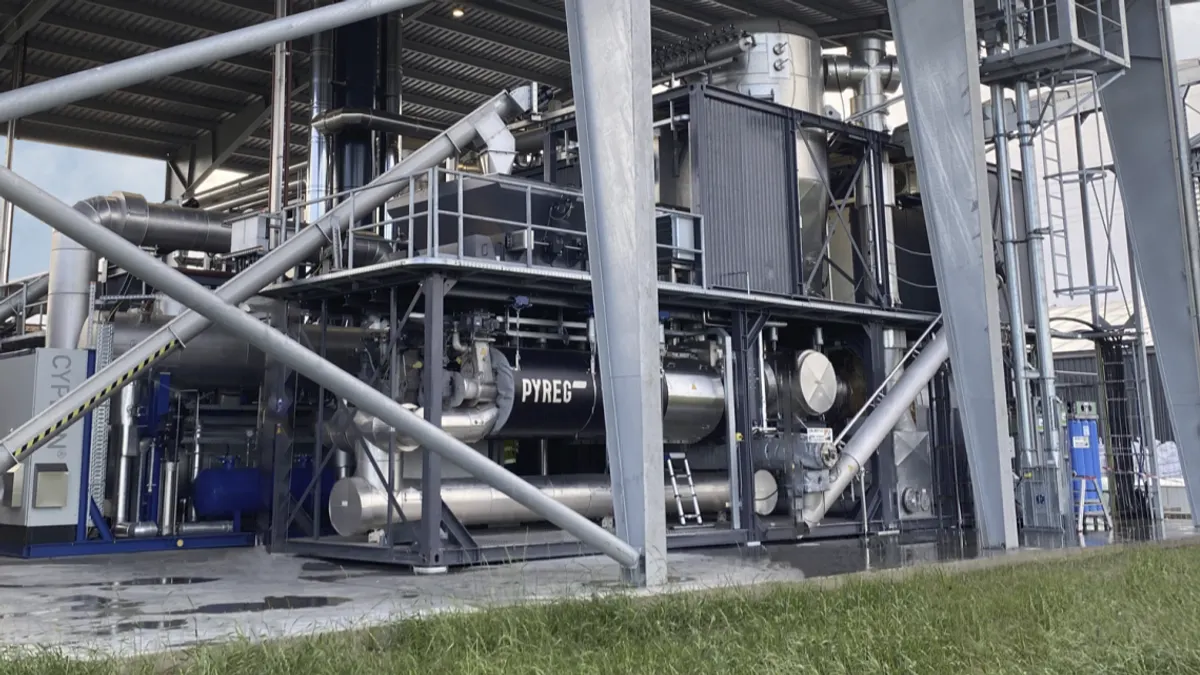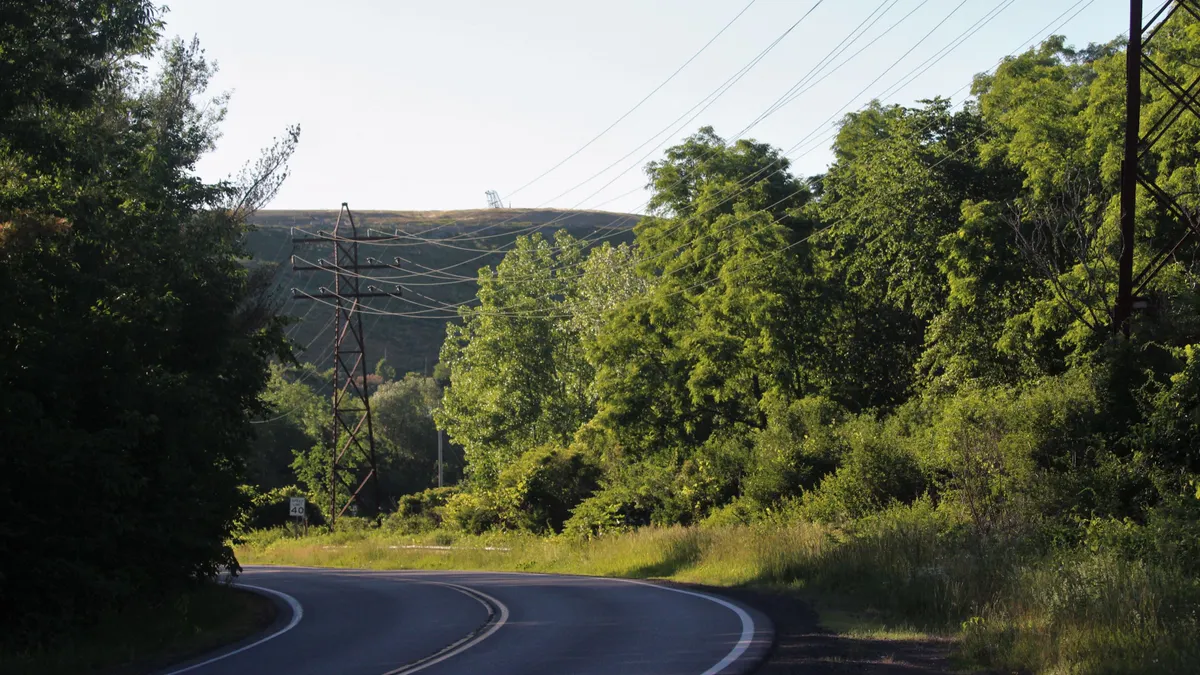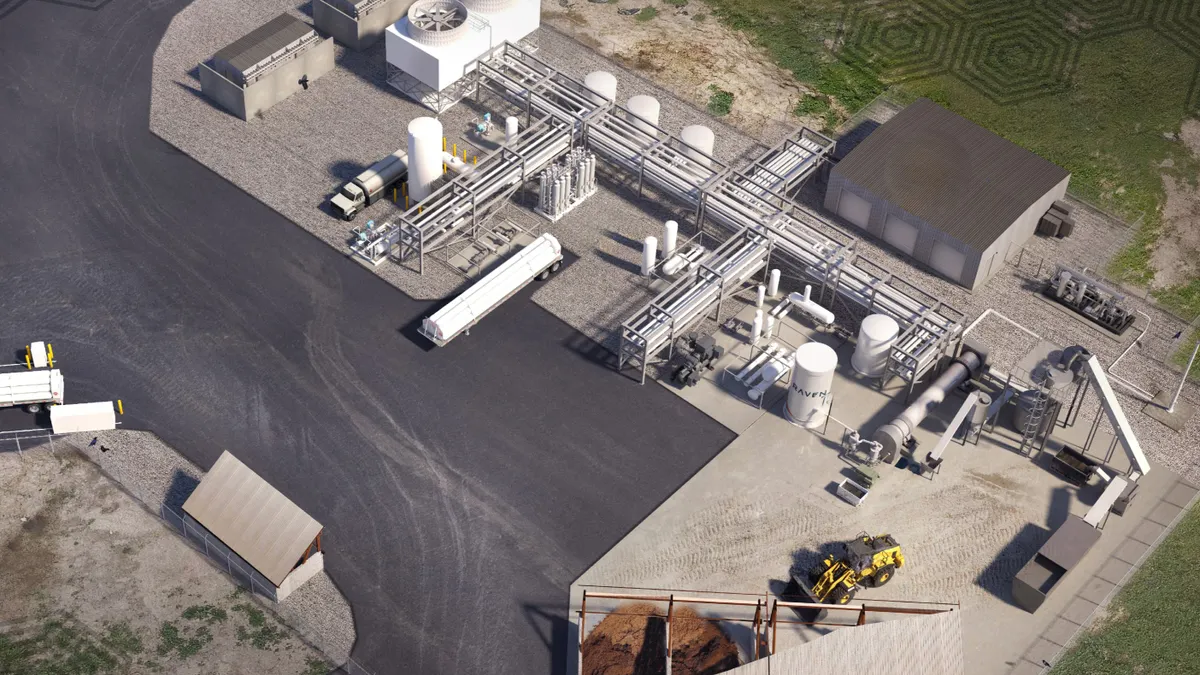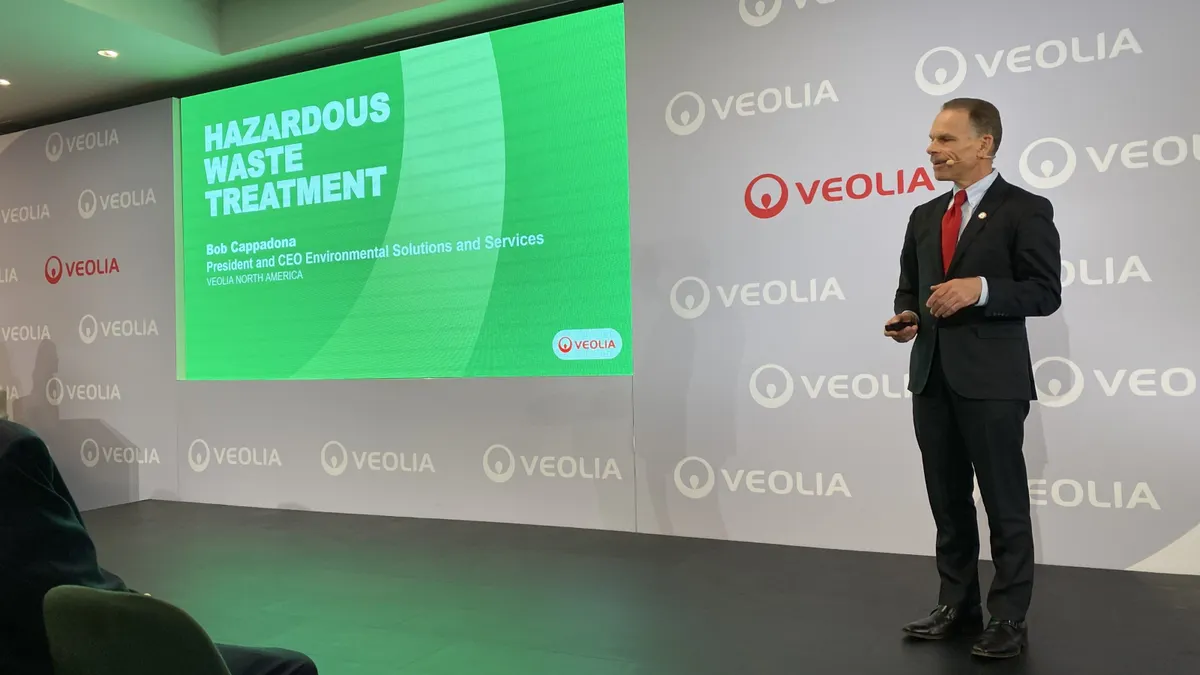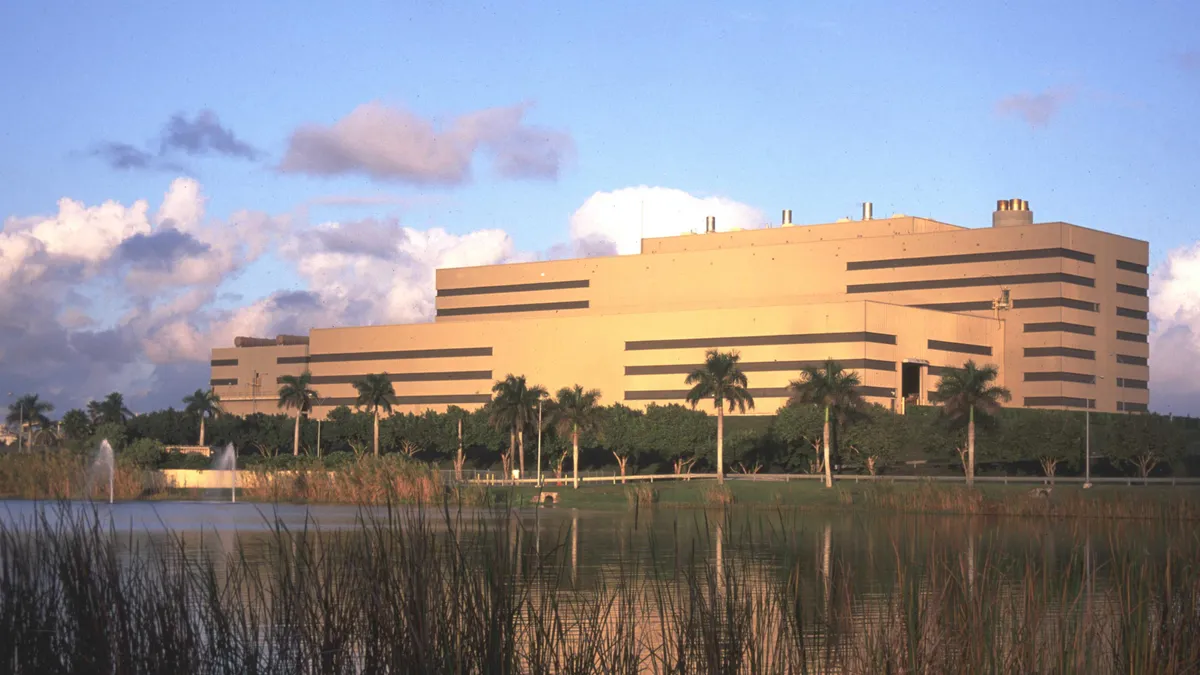The Maryland legislature has sent a pair of bills centered around waste hauling and disposal to the governor in the final days of its legislative session, which is scheduled to end Monday.
Among the bills were a plan to have Maryland align with California's zero-emission truck standards in 2026 and a bill to explore winding down a quasi-governmental agency that has previously funded incinerators in the state.
A third bill that would have removed waste incineration from Maryland's renewable energy portfolio standard appears unlikely to pass, though new Democratic Gov. Wes Moore previously indicated his interest in making the change in transition documents.
The measures join an extended producer responsibility bill passed by the General Assembly last week, which legislators amended to require a study of the state’s current recycling landscape and needs. The two chambers must agree to amendments before it can go to the governor’s desk for signature.
Clean Trucks Act
A bill that would add Maryland to a group of six states that are following California's lead on incentivizing electric trucks passed the General Assembly on Thursday, though not without amendments.
The Clean Trucks Act, which applies to vehicles from the 2027 model year onward, would require 40% to 75% of mid- and heavy-duty vehicles sold in Maryland to be electric by 2035.
Amendments supported by trucking industry groups and adopted by legislators require the state’s Department of the Environment to coordinate with other agencies to assess Maryland's grid capacity, charging station availability and additional infrastructure concerns in order to ensure the rollout of electric trucks is smooth. The bill also allows MDE to delay implementation if it determines the state isn't ready to transition yet.
The bill received criticism from Republicans, who argued the state would not be ready for implementation on the timeline provided.
Louis Campion, president and executive director of the Maryland Motor Truck Association, said the principal concerns he heard from waste haulers about the bill were about the availability of electric truck models.
"As I understand it with regards to the waste industry, there are few models available at all on the heavy-duty side right now, but there are models. The difficulty is getting those models," Campion said.
California's Advanced Clean Trucks rule received a waiver from the U.S. EPA on March 31, clearing the way for the rule to go into effect.
The Northeast Maryland Waste Disposal Authority Sunset Act
The General Assembly unanimously passed a bill that sets up a sunset review for the Northeast Maryland Waste Disposal Authority in a move that advocates could be a harbinger of Maryland’s post-incinerator future.
The bill is an outgrowth of Maryland’s State Transparency & Accountability Reform Commission, a task force set up in 2019 to review quasi-governmental agencies like NMWDA and determine procedures to explore their closure.
In the case of the NMWDA, the bill passed on Thursday would instruct Maryland’s Department of Legislative Services to explore whether and how to fold NMWDA’s existing operations and obligations into the Maryland Environmental Service, a nonprofit public corporation.
The NMWDA was created in 1980 and largely existed to issue bonds and support the development of incinerators, including a now-defunct operation in Harford County, a publicly-owned facility run by Covanta in Montgomery County and WIN Waste Innovation’s waste-to-energy facility in Baltimore.
Both active incinerators have drawn scrutiny from environmental justice advocates, though their operators maintain that operations meet regulatory limits. WIN has also embarked on emissions control upgrades totaling $40 million to meet the terms of its latest ten-year contract extension.
NMWDA was also caught up in fights over a second proposed incinerator in Baltimore and a separate facility in Frederick County, neither of which came to fruition.
Though its incinerator projects have drawn the most scrutiny, NMWDA has also helped finance landfill gas, recycling and compost projects.
Jennifer Kunze, Maryland program coordinator with Clean Water Action, said the time has come for the state to reassess how it views its waste disposal priorities.
“We’ve really seen that narrative shift,” Kunze said. “Leaders in Maryland recognize we can’t be burning our trash and we absolutely can’t be building more trash incinerators.”
The Reclaim Renewable Energy Act
The Reclaim Renewable Energy Act would have removed energy derived from waste and refuse, as well as gas produced from the anaerobic digestion of animal or poultry waste, from the top tier of Maryland's Renewable Energy Portfolio Standard.
By doing so, an incentive to purchase such electricity derived from incinerators would have been removed, Kunze said. She said the General Assembly's leadership let environmental justice advocates down in allowing the Reclaim Renewable Energy Act to stall.
"It's been a demand of the communities impacted by incineration that trash incineration does not belong in our renewable energy programs," Kunze said. "It should not be taking subsidies away from solar and wind power that we actually need."
Maryland is one of several states to include waste-to-energy facilities in the top tier for its renewable energy program, giving the industry access to valuable funding as the value of power purchase agreements has declined in many cases.
Despite stalling after committee hearings in both chambers in February, the bill's aims could see continued attention from policymakers. Gov. Moore's transition plan calls for reevaluating renewable portfolio standards to ensure energy sources are zero-carbon emissions.


